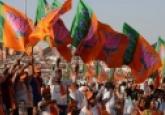Brian Stoddart is Emeritus Professor at La Trobe University in Melbourne, Australia where he served as Vice-Chancellor, a higher education consultant internationally, a regular commentator on global issues, cruise ship lecturer, and a crime fiction writer.
He took his first two degrees in History from the University of Canterbury in New Zealand, then a PhD from the University of Western Australia. His doctoral work was on nationalist politics in south India, beginning a long interest in the sub-continent. He then became a pioneer in the study of sports culture and his 1986 book, Saturday Afternoon Fever: Sport in the Australian Culture is still regarded as a definitive work. He went on to write numerous books and articles on aspects of sport in politics, international relations, business and the media as well as sports history. He is an authority on Caribbean cricket and culture, sport and international politics, and sports media. Brian Stoddart established one of the world’s first sports journalism degree programs at the University of Canberra in association with the Australian Institute of Sport.
He has maintained a strong interest in India, and is a Distinguished Fellow of the Australia-India Institute at the University of Melbourne. His recent books include A People’s Collector in the British Raj: Arthur Galletti (Delhi, 2011); Land, Water, Language and Politics in Andhra: Regional Evolution in India Since 1850 (Delhi, 2011); and (with Auriol Weigold (eds), India & Australia: Bridging Different Worlds (Delhi, 2011).
Brian Stoddart is well known as a columnist and commentator, and works now with social media (@BrianStoddart, and www.brianstoddartwriter.com).
In his most recent work as a consultant, he has lived extensively and worked in Lao PDR, Jordan, Syria and Cambodia. His memoir, A House in Damascus: Before the Fall, recounting his Old City immediately before the current problems, was an Amazon No.1 for Middle East Travel.
A Straits Settlement, the third of his Superintendent Le Fanu novels set in 1920s British India, was long listed in the 2017 Ngaio Marsh Award for best New Zealand crime novel.





